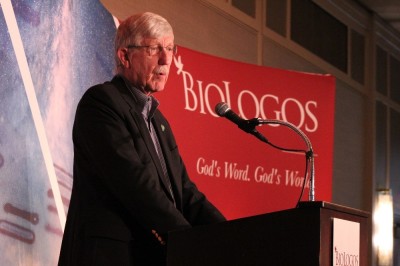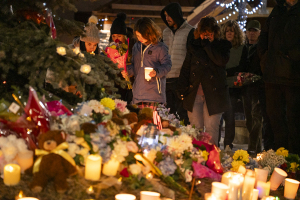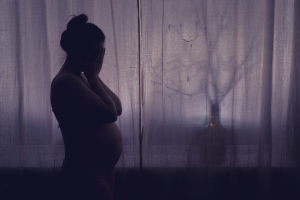Francis Collins is not sorry enough

Francis Collins is sorry, sort of.
Clips have recently been circulating from this moderated conversation between Collins and community leader Wilk Wilkinson, which was actually recorded several months ago, but is only now filtering into the discourse through short excerpts on social media. (Because it’s not as if late 2023 Francis Collins content was going to go immediately viral.) The discussion was hosted by Braver Angels, an organization that specializes in creating forums for people on opposite sides of the political divide to discuss their differences. I’m generally pessimistic about these sorts of things, but I credit the moderators for asking some reasonably pointed questions. In the course of the dialogue, Collins was induced to make this rather astonishing admission:
As a guy living inside the Beltway, feeling the sense of crisis, trying to decide what to do in some situation room in the White House with people who had data that was incomplete, we weren’t really thinking about what that would mean to Wilk and his family in Minnesota a thousand miles away from where the virus was hitting so hard. We weren’t really considering the consequences in communities that were not New York City or some other big city. The public health people — we talked about this earlier, and this is a really important point — if you’re a public health person and you’re trying to make a decision, you have this very narrow view of what the right decision is, and that is something that will save a life, doesn't matter what else happens. So you attach infinite value to stopping the disease and saving a life. You attach a zero value to whether this actually totally disrupts people’s lives, ruins the economy, and has many kids kept out of school … This is a public health mindset, and I think a lot of us involved in trying to make those recommendations had that mindset, and that was really unfortunate.
To quote Rich Lowry in National Review, “that’s an awful lot of very important things to attach a ‘zero value’ to.” I’m sure Collins is accurately describing how he, Fauci, and similarly-minded colleagues approached the crisis. But I’m also sure there are other public health officials listening in who didn’t share that approach then, and likely don’t appreciate all this blanket “we” talk now.
This is my problem with those who are now insisting that we all need to accept this admission, absolve Collins and move on. As Dr. Vinay Prasad notes in his analysis, we’re not just talking about a single tragic slip here, like an experienced neurosurgeon who makes one fatal error and loses a patient on the table. It’s more like a neurosurgeon confessing that he was never really a neurosurgeon at all. Perhaps he cut open a watermelon, once or twice, then upon cutting open a person was shocked to find that “whoa, there’s a lot of stuff in there!”
Perhaps that sounds harsh. But if you watch the whole dialogue carefully, you’ll see that Collins can’t even allow this partial confession to stand without rewriting history, casting himself as a tragic hero.
Later in the dialogue, he makes some acknowledgement of the difficulty in balancing the concerns of the physically vulnerable with those of the economically or psychologically vulnerable. But he follows this up by framing the health professionals as basically soft-hearted and the economic professionals as basically hard-hearted. Speaking as a health professional, he says he finds it “hard to contemplate a circumstance where you say it’s okay to let some people die in order to preserve some economic benefits,” although no doubt some economists could make a “spreadsheet” telling you “the monetary value of a life.” He just has a hard time with all that, “because I swore the Hippocratic Oath, and to be able to say well, that was just sort of conditional on it being okay economically is a very hard thing to do.”
In other words, sure, he messed up … by caring too much. But how much can you really blame a guy for caring too much?
Meanwhile, I am neither a health professional nor an economist, but here I was in March 2020, still being more cautious than I would now be in hindsight (especially about closing churches), but able to at least start asking questions Francis Collins was professionally incapable of asking, apparently:
The fact is, raising the alarm about how far we take economically crippling anti-COVID measures is not just an exercise in College Republican Club policy wonkery. It’s an acknowledgement of the people whose way of life has been barely hanging by a now-broken thread. A “bad economy” doesn’t just mean flashing red lights on a computer screen in Wall Street offices. It means chaos for the single mom scotch-taping together waitressing and house-cleaning jobs. It means ruin for the small-business owner who built something from nothing and now has to snip the lifeline for his employees personally. It means uncertainty for the food vendor with a wife and kids and a father depending on him. You can see these human faces and more in this short documentary of New York on the cusp of the shutdown.
This is to say nothing of how the shutdown will affect those who are mentally ill, clinically depressed, addicted, or trapped in abusive family situations — all issues which are typically compounded by poverty. How will an economic crash coupled with severe isolation affect these people financially, mentally, spiritually? How will it affect the relationships between care-givers and people who need care? Between pastors and fragile congregants?
I also pointed out that if this was all about preserving our healthcare system, a crashing economy wasn’t conducive to that goal:
Why should we assume that a crashing economy would leave the healthcare system standing? You can’t keep the hospital lights on without keeping on the lights of the economic sectors undergirding it. Yes, our doctors and nurses are running out of masks and gloves, which is a serious problem. It would also be a serious problem if we lost the means and the manpower to make more, or if the hospitals ran out of cash on hand to buy more beds, ventilators, etc.
And there’s the rub. We are being told we can’t fight the virus without pausing the economy, yet we can’t fight the virus without the economy.
Here, believe it or not I was actually picked up and quoted in The Atlantic by Conor Friedersdorf, in his May 2020 article “Take the Shutdown Skeptics Seriously.” I don’t know Conor’s work well, though I think he tends to lean left while I (obviously) lean right. I didn’t even keep up with how our views evolved through different stages of the pandemic. If I had to guess, we probably went on to drift apart in various ways. But my point is, at this very early stage, there we both were, reasonable people independently saying this stuff. And we were far from alone.
But instead of allowing the debate, Collins systematically squelched it. Most famously, his leaked emails called for a “devastating takedown” of the epidemiologists behind the Great Barrington Declaration, which proposed sheltering the most vulnerable members of the populace while the less vulnerable acquired natural immunity. In this new dialogue, the moderators give him a chance to specifically apologize for this … which he refuses. Instead, he doubles down with the “context” that these scientists tried to “short-circuit” the debate process and “ram through” a drastic policy decision by pitching the Declaration to one of Trump’s advisors. Never mind, of course, that the original lockdown was the “drastic” overnight policy decision, and that as director of the NIH, Collins was in complete control of who to exclude from the debate table. In another clip, he further demonizes those dissenting voices who “made things worse” by daring to disagree with him, while noting that “China certainly didn’t have a problem” with politicians or media disagreeing with their leadership.
Well, no kidding, Francis. Meanwhile, I’m sorry to report that we’re still in America. I know, you were daydreaming and you forgot. Mistakes were made, as they say.
Again, Rich Lowry is on point in his column when he points out that if Collins was wrong, that means the dissenters were right. And if Collins now wants to offer an apology with one hand, he doesn’t get to take it away with the other by continuing to demonize those others as fundamentally ignoble, while painting himself even in error as fundamentally noble.
The one place where I disagree with Lowry is this paragraph:
Francis Collins, one of the most eminent scientists in the country and a subtle thinker who dissents from the orthodoxy that science and faith are incompatible, would have been an ideal voice to counter the propaganda campaigns that aimed to suppress unwelcome views and even unwelcome facts. Instead, he stuck with his tribe.
This actually gets Collins importantly wrong. The truth is that Collins’s writing on science and faith has never strayed particularly far from scientific establishment creeds. On the contrary, his history of suppressing unwelcome views in the sciences is quite consistent, as anyone familiar with the history of intelligent design research can attest. While his book The Language of God did make an argument for some kind of “information infusion” at the beginning of creation, it also carelessly dismissed much careful work challenging the adequacy of Darwinian mechanisms. In passages that could practically have been copy-pasted from Richard Dawkins, he showed a basic unfamiliarity with intelligent design arguments, clearly positioning himself as a credible establishment voice here to put the “pseudo-science” to bed. Later, he admitted that he’d stopped using the term “junk DNA,” but this was very little, very late. So Rich Lowry may be surprised, but some of us recognize that, really, this is just Francis Collins doing what Francis Collins has always done.
As a Christian analyst, I can further speak to the way that Collins was effusively propped up as a “faithful presence” by elite evangelicals, whom he in turn used as religious mouthpieces for his COVID protocol. Protestant Christians are not generally known for achieving success at Collins’s level while making open professions of faith, so he became a model for “how it’s done.” You see, most of us are just too fundamentalist, anti-science, and anti-establishment to have nice things, like being the director of the NIH. But Francis is smart. Be like Francis.
The problem is, as seminary professor Andrew Walker writes astutely, that while “faithful presence” is supposed to be about Christians shaping institutions in principle, that’s not what happens in practice. In practice, the institutions shape you.
Of course, that hasn’t stopped Collins from constantly, cloyingly reminding everyone that he is “a person of faith.” At the end of 2021, he told the BBC that he had wept and thanked God for the vaccine. And “to the earnest church member,” he wanted to say that God had given them a gift, “but you have to open the gift, give thanks, and then roll up your sleeve.”
Two years and a plethora of adverse event reports later, he shows absolutely no signs of reconsidering this injunction. On the contrary, he doubles down in the new dialogue, literally saying “I’m the scientist here.” The rest of his comments aren’t much more substantive than that, merely repeating the usual clichéd assertions that the vaccines “saved lives” and adverse events were “very rare.”
I myself never denied that the vaccines saved some lives. But I could acknowledge some lives were saved while raising legitimate questions about the trial process, followed by adverse event data that seem to present a cumulative picture of other lives seriously damaged. For example, I’m allowed to think it odd that when Bree Dressen suffered a severe neurological reaction immediately after dose one of the Astrazeneca shot, she was dropped from the trial and her data not included in the subsequent report. (Read her husband’s testimony here.) Dressen was told that in order to count, she needed two doses, but she declined a second dose, for obvious reasons.
Meanwhile, 12-year-old Pfizer trial subject Maddie de Garay suffered an even more catastrophic reaction after her second dose, which left her unable to walk or eat. This event was seriously downplayed in the subsequent documentation, and the family was stonewalled for months by medical professionals. Some even tried to diagnose Maddie with “anxiety.” Only a year and a half later did they get an official admission that she had almost certainly suffered a vaccine injury. (Listen to testimony from Maddie’s mother here, read a detailed report here). Maddie was one of only 1,000 children in her age bracket to receive the trial shot. Serious injury or death from COVID itself has not been observed with anything like that frequency for children this young. Her case should have been a subject for immediate, serious study. Why wasn’t it?
There’s much, much more I could say about vaccine injury data. I highlighted a little of it in this piece a year ago during the discourse around Damar Hamlin’s injury, when people weren’t even allowed to breathe the speculation that his heart might have been left more vulnerable than normal by a COVID shot. By then, enough otherwise healthy young men had suffered vax-caused heart damage that people were doing studies on it. The conversation was an entirely reasonable one to be having in general, whether or not it was related to Hamlin’s injury. And that was just a single sub-category of injury. Cardiac cases seemed to form one kind, while neurological cases like Bree Dressen and Maddie de Garay formed another. One woman told me the heartbreaking story of her elderly father, who abruptly lost all nerve function in his esophagus after she urged him to get vaccinated in February 2021. The hospital gastroenterology chief who filed the report was convinced that the connection was causative, saying that never in his 40 years of specialized practice had he ever seen such a spontaneous and complete loss of function. (The father received the Moderna shot, and his case number is 1275749-1, for anyone curious to look up the VAERS report themselves — I’m unable to link directly.) Since then, this man has suffered through multiple surgeries, unable to eat or speak, his retirement plan to do interim pastoring work in tatters.
I could go on. You can also look up Case 1692747-1 for an example of severe cranial nerve damage in a 65-year-old woman. Or try Case 2203556-1 for a little potpourri of symptoms including small fiber neuropathy, gait disturbance, and tinnitus, all of which I’ve seen crop-up multiple times in other reports. (You can leaf through a whole collection of VAERS reports just on gait disturbance just in pediatric cases here, from a data scientist whose Twitter threads I have to retrieve from the Wayback Machine because her account was deleted. If curious, you can also browse this one, on under-18s having strokes. A number of previously healthy young people were also reported suddenly having seizures. Here’s one case report for a 15-year-old who died. And on and on it went.)
And of course, as long-time readers of mine already know, I could also point to my own mother, injured in April 2021, who still experiences intense chronic pain from what now appears to be permanent deep nerve damage. Here’s a clip from a longer discussion with Bret Weinstein where she discusses the social stigma around speaking publicly about these injuries. By definition, none of the injured were “anti-vaxxers,” including my mother. She trusted the system, like Maddie de Garay trusted the system. All of them trusted a system that was supposed to be rigorous, overseen by professionals like Francis Collins who were supposed to know what they were doing.
So, where’s their apology now? Especially the ones who were forced to receive a vaccine or lose their jobs? The ones Collins was caught laughing at on a hot mic in 2021, putting on a Southern accent to mock those stupid people who like to talk about “muh freedom”?
Yet there he is up on stage in 2023, solemnly recalling the “incredibly malignant way” that “politics got in there” — but not through him, of course. Through everyone else, naturally. “Politics got in there in an incredibly malignant way, I have to say.”
I’ll say, Francis.
___________________
This essay was originally posted at Further Up.
Bethel McGrew is a prolific freelance writer, educator, and conservative communicator, with bylines in First Things, National Review, World Opinions, and more. Her Substack, Further Up, is one of the most popular newsletters offering cultural commentary in Christian perspective.



























